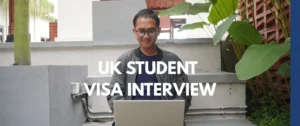For international students, studying in the UK is just the beginning—an exciting step toward building a future in one of the world’s most vibrant nations. But what happens after graduation? Securing permanent residency (PR), officially known as Indefinite Leave to Remain (ILR), lets you live, work, and study in the UK without time limits. In 2025, the pathways to PR are diverse, but they require planning and persistence. This guide breaks down the best, most reliable methods to transition from a student visa to UK permanent residency, straight from top sources like GOV.UK. Whether you’re finishing a degree in London or a PhD in Edinburgh, here’s how to make the UK your permanent home.
What Is UK Permanent Residency?
PR in the UK (ILR) grants you the right to stay indefinitely, access public services like the NHS, and work without visa restrictions. It’s a major milestone, after 12 months of ILR, you can even apply for British citizenship. For students, the journey typically starts post-study, as time on a Student visa doesn’t count toward ILR. Instead, you’ll need to switch to other visa routes. Below, we’ve listed the most effective methods to achieve PR after your studies in 2025.
Top Methods to Secure UK Permanent Residency After Study

Here’s your definitive list of pathways, each backed by the latest UK immigration rules and tailored for students:
1. Graduate Visa Route to Skilled Worker Visa
- How It Works: After completing a UK degree (bachelor’s, master’s, or PhD), apply for the Graduate Visa. It lets you stay and work for 2 years (3 years for PhD graduates) without needing a job offer. Use this time to find a skilled job with a Home Office-approved sponsor.
- Next Step: Switch to a Skilled Worker Visa (successor to Tier 2 General). You’ll need a job offer with a minimum salary (currently £38,700 as of April 2024, subject to 2025 review) in an eligible occupation.
- PR Timeline: After 5 years on the Skilled Worker Visa, apply for ILR.
- Why It’s Great: No immediate job pressure post-graduation, giving you the flexibility to explore opportunities.
- Tip: Target shortage occupations (e.g., nursing, IT) for faster sponsorship.
2. Global Talent Visa
- How It Works: If you’re exceptional in fields like science, arts, or tech, apply for the Global Talent Visa after your studies. You’ll need an endorsement from a recognised UK body (e.g., UKRI for researchers).
- PR Timeline: Eligible for ILR after just 3 years, a fast track compared to most routes.
- Requirements: Prove leadership or potential in your field—think published research, awards, or professional recognition.
- Why It’s Great: No job offer or sponsor is needed, which is ideal for standout graduates.
- Tip: Start building your portfolio during your studies to strengthen your application.
3. Innovator Founder Visa
- How It Works: Launch your own business with the Innovator Founder Visa. You’ll need an innovative, viable business idea endorsed by an approved body (e.g., a university or business incubator).
- PR Timeline: Apply for ILR after 3 years if your business succeeds.
- Requirements: £50,000 in investment funds (sometimes waivable if switching from another visa) and a solid business plan.
- Why It’s Great: Perfect for entrepreneurial students with big ideas.
- Tip: Use your Graduate Visa period to test your concept before applying.
4. Family Visa Route
- How It Works: If you marry or enter a civil partnership with a British citizen or settled person (e.g., someone with ILR), apply for a Family Visa as a spouse/partner.
- PR Timeline: Eligible for ILR after 5 years (or 2 years in some accelerated cases with a British partner).
- Requirements: Prove a genuine relationship (e.g., marriage certificate, joint bills) and meet the financial threshold (£29,000/year as of 2024, under review in 2025).
- Why It’s Great: A personal connection can speed up your PR journey.
- Tip: Ensure your partner’s status is confirmed before applying.
5. Long Residence Rule
- How It Works: Live in the UK legally for 10 continuous years on any combination of visas (e.g., Student Visa, Graduate Visa, Skilled Worker Visa), then apply for ILR.
- PR Timeline: 10 years total, with no single absence over 6 months or 18 months combined.
- Requirements: Maintain lawful status and provide detailed residency proof (e.g., visa records, tenancy agreements).
- Why It’s Great: A fallback if other routes take longer—time adds up naturally.
- Tip: Keep meticulous records of your UK stay from day one.
6. High Potential Individual (HPI) Visa to Skilled Worker
- How It Works: If you graduated from a top global university (per the Home Office list) within 5 years, apply for the HPI Visa. It lasts 2 years (3 for PhDs) and allows work without sponsorship.
- Next Step: Switch to a Skilled Worker Visa after securing a sponsored job, then pursue ILR after 5 years.
- Requirements: Degree equivalence to UK standards and English proficiency.
- Why It’s Great: No initial job offer needed, ideal for elite graduates.
- Tip: Check the 2025 HPI university list on GOV.UK—eligibility updates annually.
General Requirements for ILR (Across All Routes)
Regardless of your path, these conditions apply when applying for PR:
- English Proficiency: Pass a B1-level test (e.g., IELTS) or hold a UK degree taught in English.
- Life in the UK Test: Demonstrate knowledge of British culture and history.
- Good Character: No serious criminal record.
- Application Fee: £2,885 (standard, 2025 rate), plus £500 for priority (5 days) or £1,000 for super-priority (1 day).
- Biometrics: Submit fingerprints and a photo at a UKVCAS centre (free).
Costs and Processing Times
- Graduate Visa: £822 + £1,035 IHS/year.
- Skilled Worker Visa: £719–£1,639 (depending on job shortage status) + IHS.
- ILR Processing: 6 months standard, faster with priority services.
- Tip: Budget £10,000–£15,000 total over 5–10 years, including fees and living costs.
Why Stay in the UK After Study?
PR unlocks stability, works any job, accesses free healthcare, and pays domestic tuition fees for further study. In 2025, with the UK economy rebounding, fields like tech, healthcare, and engineering are hungry for talent, making it a prime time to settle.
Final Thoughts
From the Graduate Visa to the Innovator Founder route, securing UK permanent residency after study in 2025 is a journey of steps, not shortcuts. Start early—apply for your Graduate Visa before your Student visa expires, network for jobs during your studies, and explore fast-track options like Global Talent if you qualify. The UK welcomes skilled graduates, and with this guide, you’re equipped to turn your student days into a lifetime here. Check GOV.UK for the latest forms and rules, and take your first step toward calling the UK home today!









